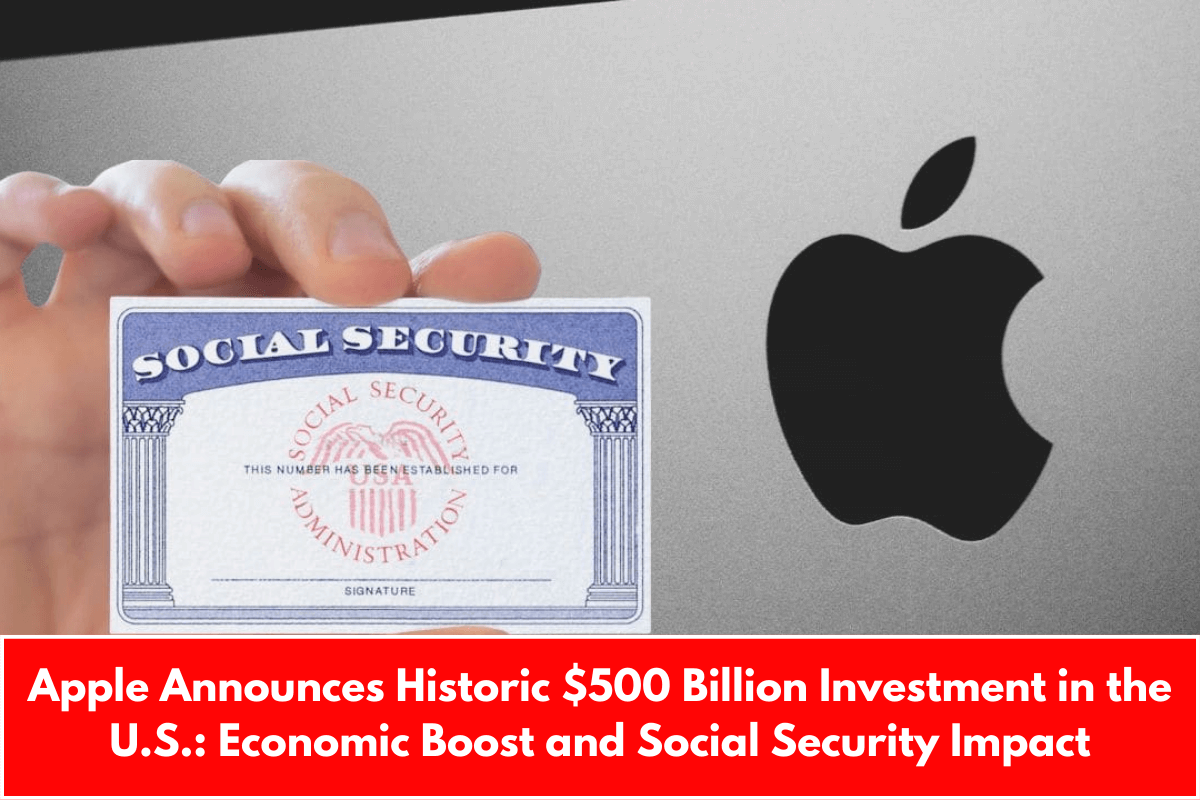Apple has announced an ambitious plan to invest more than $500 billion in the United States over the next four years, making it one of the largest corporate investments in the country’s history.
The initiative includes the creation of 20,000 new jobs, the expansion of its artificial intelligence infrastructure, and the construction of a cutting-edge manufacturing facility in Houston, Texas.
This announcement coincides with growing concerns about US-China trade relations and a broader push for domestic technological independence.
Apple hopes that by investing so heavily in American operations, it will strengthen the country’s economy while also reinforcing its position as an innovator.
The move is expected to have far-reaching consequences for several industries, including research and development, advanced manufacturing, and artificial intelligence.
Job Creation and Economic Growth
Apple intends to hire 20,000 additional employees, with a focus on AI development, semiconductor engineering, and software innovation.
The new Houston facility, which covers more than 250,000 square feet, will manufacture servers for Apple Intelligence, the company’s artificial intelligence initiative.
This investment not only strengthens Apple’s capabilities, but it also helps local economies by creating high-paying jobs and increasing tax revenues.
Potential Impact on Social Security and Retirement Benefits
One important aspect of Apple’s investment that may not be immediately apparent is the potential impact on the United States’ Social Security system.
With the creation of thousands of new jobs, many of which will be high-paying positions, payroll tax contributions will rise significantly, helping to fund Social Security retirement benefits. This could provide critical support to a program that has faced long-term funding challenges.
Furthermore, as Apple strengthens its commitment to U.S. manufacturing, workers earning competitive wages will contribute more to Social Security and Medicare, thereby helping to sustain these critical programs for future retirees.
The investment could also set a precedent for other tech behemoths, encouraging a wider shift toward domestic job creation that benefits both the economy and public pension systems.
By aligning its investment with long-term economic growth, Apple not only maintains its market dominance but also helps to secure the financial future of millions of Americans who rely on Social Security.
This decision may spark further debate about how private sector growth can have a direct impact on the long-term viability of federal retirement benefits.
With this historic $500 billion investment, Apple is making a bold statement about its corporate strategy as well as its role in shaping the US economic and social landscape.















